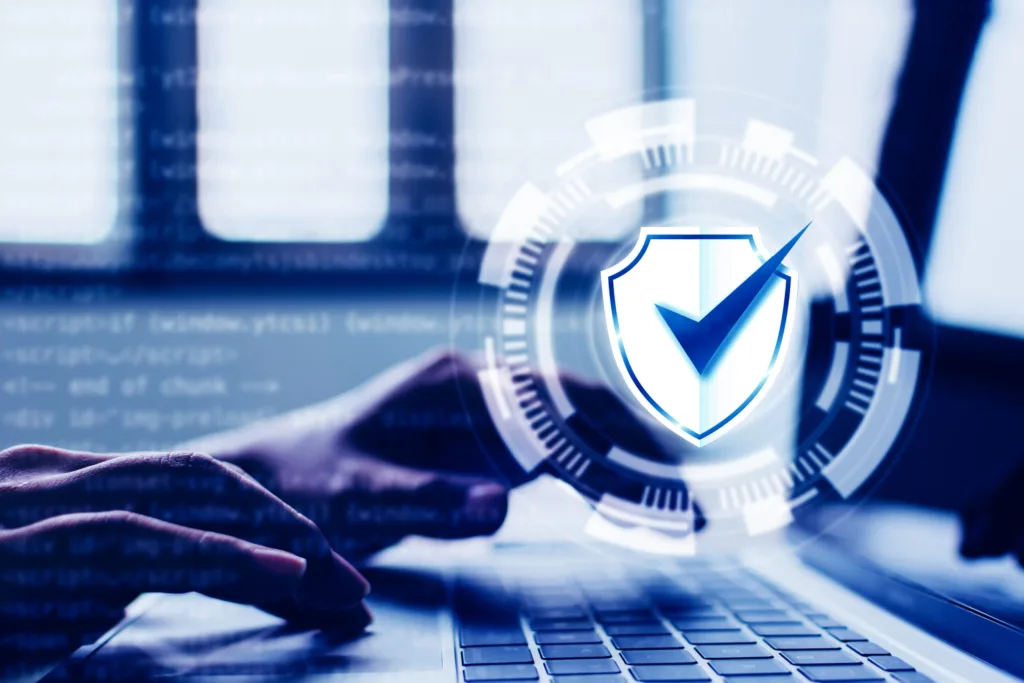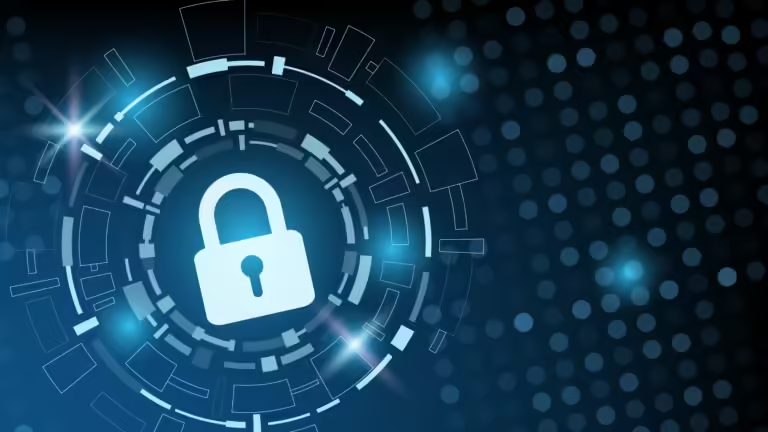Best Cybersecurity Companies in India
Cybersecurity is of great significance in India due to the increasing reliance on technology and the rapid digitalization of various sectors such as finance, healthcare, government, and education. With a large population and a growing digital infrastructure, India is becoming increasingly vulnerable to cyber-attacks and threats.
Cyber-attacks can have severe consequences for the country’s economy, national security, and the privacy of its citizens. A breach in cybersecurity can lead to financial losses, disruption of critical services, theft of sensitive data, and even compromise of government systems.
Furthermore, India is a hub for IT services and outsourcing, making it a prime target for cyber criminals seeking to steal valuable data or disrupt operations. In order to protect its critical infrastructure, businesses, and individuals, India needs to prioritize cybersecurity measures through robust policies, regulations, and investments in technology and expertise.

Pages
- About Us
- Vulnerability Assesment & Penetration Testing
- UAE Data Privacy
- KSA PDPL implementation and Fines
- Continuous Monitoring in Cybersecurity | Cyber Security Monitorring
- Empower Your Business with VCISO Services
- Soc Services
- Cyber Technology
- Security Assessments
- Audit and Compliance
- service
- India
- Cyber Security Framework SAMA
- Training & Skill Development
- Australia
- NESA Audit
- SOC2 Audit
- UAE
- Qatar
- Saudi Arabia
- Geographies
- Privacy Policy
- Penetration Testing
- Managed SOC Services
- Threat Hunting
- Digital Forensics
- Malware Analysis
- Cloud Security
- Incident Handling And Monitoring Services
- Red Team Assessments
- Mobile Application Audits
- Data Privacy
- ISO 27001
- Cyber Security Expert
- Vulnerability Assessment
- Application Security Auditing
- PCI DSS Compliance
- Privacy Policy-old
- Contact
- Blog
- Home
Table of Contents
Who are the top cybersecurity companies in India?
Kaspersky
Kaspersky Lab is a global cybersecurity company that specializes in developing and providing security solutions to individuals, businesses, and governments worldwide. The company offers a range of products and services including antivirus software, internet security, and endpoint protection to protect against cyber threats such as malware, ransomware, and phishing attacks. Kaspersky Lab is known for its advanced threat intelligence and is recognized for its high-quality security products by industry experts and independent testing organizations.
Eshield It services
eShield is an IT service provider based in India that offers a range of services such as cybersecurity, cloud solutions, infrastructure management, and IT consulting. Their team of experts helps businesses enhance their IT infrastructure, improve security measures, and optimize their systems for better performance and efficiency. They work closely with clients to understand their specific needs and deliver customized solutions that align with their business objectives. eShield aims to provide reliable and cost-effective IT services to help businesses stay competitive in a constantly evolving digital landscape.
Symantec
Symantatorporation is a global leader in cybersecurity software and services, helping organizations protect their data and information from cyber threats. They offer a range of products including antivirus software, firewall protection, endpoint security, and web security solutions. Symantec’s technology helps defend against malware, ransomware, phishing attacks, and other online threats, providing comprehensive protection for businesses and individuals.
Trend Micro
Trend Micro is a global cybersecurity company that provides security solutions to protect organizations and individuals against a wide range of cyber threats such as malware, ransomware, phishing attacks, and data breaches. The company offers a range of products and services including antivirus software, endpoint security, network security, and cloud security solutions. Trend Micro uses advanced technology and threat intelligence to help its customers detect, prevent, and respond to cyber threats effectively.
McAfee
McAfee is a cybersecurity company that provides antivirus software and other security products and services to protect individuals and businesses from online threats such as malware, viruses, and hackers. Founded in 1987 by John McAfee, the company has since become a global leader in cybersecurity solutions.
Palo Alto Networks
Palo Alto Networks is a leading cybersecurity company that offers a range of products and services to help organizations protect their networks, cloud environments, and mobile devices from cyber threats. Their offerings include firewalls, endpoint security, cloud security, and threat intelligence services. Palo Alto Networks is known for its next-generation security capabilities, such as advanced threat detection and prevention technologies, and is widely used by businesses and government agencies around the world
Check Point
Check Point is a cybersecurity company that provides network security, endpoint security, cloud security, and security management solutions to protect organizations from cyber threats. Their products and services help businesses detect and prevent cyber attacks, secure sensitive data, and mitigate security risks. Check Point’s technologies include firewalls, intrusion prevention systems, anti-malware solutions, and mobile security solutions to safeguard networks and data from cyber threats.
Fortinet
Fortinet is a cybersecurity company that provides network security solutions for businesses and organizations. They offer a range of products and services including firewalls, secure Wi-Fi, endpoint security, and more to protect against cyber threats and help secure networks. Their solutions are designed to provide comprehensive protection and help organizations defend against evolving cyber threats.
FireEye
FireEye is a cybersecurity company that provides solutions and services to help organizations protect against cyber threats, detect and respond to security breaches, and analyze and investigate cyber attacks. They offer a range of products including network security, endpoint security, email security, and threat intelligence to help companies improve their cybersecurity posture. FireEye’s expertise in cybersecurity has made them a trusted partner for many organizations worldwide.
Sophos
Sophos is a cybersecurity company that provides advanced cybersecurity solutions to protect organizations from cyber threats, including malware, ransomware, phishing attacks, and more. Their products include endpoint security, network security, cloud security, and security management tools to help businesses defend against evolving cyber threats.
What services do cybersecurity companies in India provide?
Cybersecurity companies in India provide a range of services to protect organizations from cyber threats and breaches.
1. Risk Assessment and Management:
Risk assessment and management is the process of identifying, analyzing, evaluating, and controlling potential risks or uncertainties that may affect an organization’s operations or objectives. This process involves assessing the likelihood and impact of risks, developing strategies to mitigate or avoid them, and monitoring and reviewing these strategies to ensure they are effective.
The goal of risk assessment and management is to proactively identify and address risks before they become problems, in order to minimize potential negative impacts on the organization. Key steps in this process include identifying and prioritizing risks, determining appropriate risk management strategies, implementing these strategies, and regularly reviewing and updating the risk management plan as needed.
Overall, risk assessment and management help organizations make informed decisions, reduce potential losses, and improve their ability to achieve their goals in a structured and systematic manner.
2. Security Consulting:
Security consulting services involve assessing an organization’s security needs and developing a comprehensive security plan to protect their assets, personnel, and information. This can include evaluating physical security measures, cybersecurity protocols, and risk management strategies. Security consultants help identify vulnerabilities and recommend solutions to improve security and prevent potential threats. They may also provide training and support to ensure the implementation of security measures throughout the organization. Overall, security consulting services aim to enhance an organization’s overall security posture and mitigate risks of security breaches.
3. Penetration Testing:
Penetration testing, also known as ethical hacking, is the practice of testing a computer system, network or web application to find security vulnerabilities that an attacker could exploit. This testing is done by simulating a cyber-attack on the system to identify weaknesses and potential entry points for malicious hackers.
Penetration testing services typically involve a combination of automated tools and manual testing techniques to uncover security flaws such as misconfigurations, coding errors, and outdated software. The goal of penetration testing is to help organizations strengthen their overall security posture and protect against cyber threats.
Some common types of penetration testing services include network penetration testing, web application penetration testing, wireless network penetration testing, and social engineering penetration testing. By identifying and fixing vulnerabilities before they are exploited by attackers, organizations can better protect their sensitive data and systems from potential breaches.
4. Security Monitoring and Incident Response:
. Security monitoring is the process of continuously monitoring an organization’s networks, systems, and applications to detect and respond to security incidents. This includes monitoring for unauthorized access, unusual activity, malware, and other potential threats.
Incident response is the process of responding to and mitigating security incidents that have been detected through monitoring. This involves identifying the extent of the incident, containing the threat, eradicating the cause, and recovering systems and data. Incident response also involves investigating the root cause of the incident to prevent future occurrences.
Overall, security monitoring and incident response are essential components of a comprehensive cybersecurity strategy that help organizations proactively detect and respond to security threats in order to protect their sensitive data and assets.
5. Security Training and Awareness:
Security training and awareness is the process of educating employees and individuals about potential security threats, best practices for preventing security breaches, and how to respond in the event of a security incident. This training typically covers topics such as password security, phishing scams, data protection, device security, and the importance of reporting suspicious activity. By providing ongoing security training and awareness programs, organizations can help to create a culture of security awareness and reduce the risk of cyber-attacks and security breaches.
6. Compliance and Regulatory Compliance:
Compliance refers to the adherence to rules, regulations, laws, and policies set forth by governing bodies, organizations, or industries. Regulatory compliance specifically focuses on the laws and regulations that are imposed by government authorities on businesses and organizations.
Maintaining compliance means following not only the letter but also the spirit of the laws and regulations to ensure ethical conduct and mitigate risks. Non-compliance can result in fines, penalties, legal actions, and damage to a company’s reputation.
Regulatory compliance involves staying current with the ever-changing landscape of laws and regulations, understanding how they apply to a specific organization, and implementing processes and controls to ensure compliance. This can require ongoing monitoring, training, auditing, and reporting to demonstrate compliance. Compliance officers or compliance departments are often responsible for overseeing and ensuring regulatory compliance within an organization.
What are the trends in the cybersecurity industry in India for 2024?
1. Increasing focus on cybersecurity skills development:
With the increasing number of cyber threats, there is a growing demand for skilled professionals in the cybersecurity industry in India. Companies and organizations are investing in training programs and certifications to increase the number of skilled cybersecurity professionals in the country.
2. Rise in cyber insurance:
As cyber threats continue to evolve, many companies in India are opting for cyber insurance to protect themselves from potential financial losses due to cyber attacks. Cyber insurance policies are expected to become more popular in the coming years.
3. Growth of Managed Security Services Providers (MSSPs):
Many organizations in India are outsourcing their cybersecurity needs to Managed Security Services Providers (MSSPs) to ensure round-the-clock monitoring and protection. This trend is expected to continue to grow in 2024 as organizations look for cost-effective ways to manage their cybersecurity needs.
4. Increased focus on regulatory compliance:
With the implementation of regulations such as the Personal Data Protection Bill and the Cyber Security Law in India, organizations are focusing on ensuring compliance with these regulations. This includes implementing robust cybersecurity measures to protect sensitive data and prevent data breaches.
5. Adoption of advanced technologies:
In response to the increasing sophistication of cyber threats, organizations in India are adopting advanced technologies such as artificial intelligence, machine learning, and automation to enhance their cybersecurity defenses. These technologies can help organizations detect and respond to threats more quickly and effectively.











